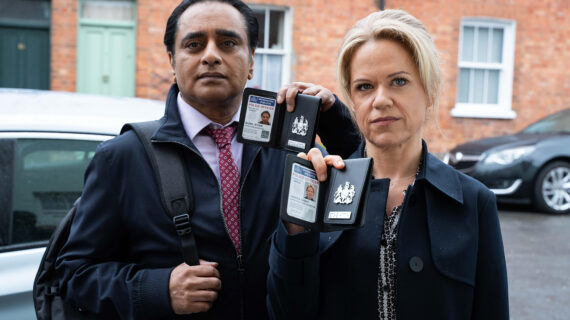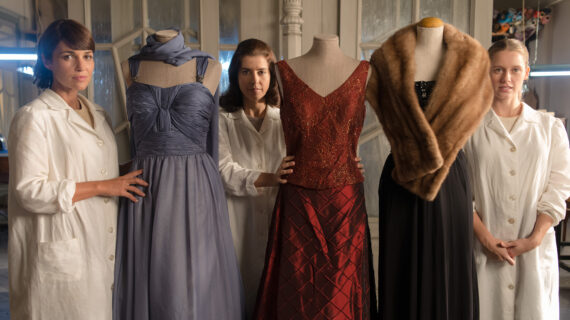Frederica Freyberg:
Governor Tony Evers this week extended his “safer at home” order until May 26. Even then, he says, reopening the state won’t be like flipping a switch. It would likely be gradual and depends on having enough testing, personal protective equipment and beefed up contact tracing. Governor Evers has agreed to join us each Friday. This afternoon, he joined us from the executive residence. Governor Evers, thank you so much for being with us.
Tony Evers:
You’re welcome, Frederica. Thanks so much.
Frederica Freyberg:
Well, I don’t have to tell you that your extension of the “safer at home” order is controversial. We have protests planned for around the capitol next week. We’ve got majority Republican legislators saying that they’re talking about filing a lawsuit. What is your reaction to the upset around this?
Tony Evers:
Well, my reaction is we need to continue to follow the science. I mean, we’ve always talked about the fact that we needed to reduce the number of cases that we have and it hasn’t happened. I mean, the first order, and people did follow it, safe at home. They’re doing it. We saved lives by doing it, but we still haven’t reached that point where we can say it’s headed in the opposite direction. So we — frankly, from a science point of view, we had no choice. And the second thing is — and I think some people forget about this, but when I talk about this, especially this order, this order is about making sure that we’re getting to a better place health-wise, but we’re also talking about how this gets us to the point where we can start to reopen parts of our economy. So it’s both these things happening at the same time. So people, politicians have to do what they have to do. I’m focused on making sure that we do the right thing health-wise for our state and the right thing for our economy.
Frederica Freyberg:
Now, you say that three things are needed to reopen the state: massive expansion of testing capacity, sufficient personal protective equipment for health care workers and greatly expanded contact tracing. Describe why having those things met will mean that it is safe then to go about our business.
Tony Evers:
Yeah. And I’ll just have to say those are the same things that we saw President Trump talk about in his comments and the CDC’s comments the other day. So these aren’t new things. But why they’re important is this. At some point in time, we will have a chance to rapidly reduce the number of people that are still positively impacted — or have a positive test. But what we have to do is be ready for those — until we have a vaccine, that virus is not going away. So we need to make sure that we have everything in place so that when we do find someone, we have the testing. We’ll do much more testing than we do now, then we can use those contact tracers to follow up with that person. Find out who they’ve been involved with and talking to and exposing, and get those people 14 days isolation so that we can start to do this in a way that’s important. Now, the equipment is the same thing. We need that for testing, people that do the tests. But we also need that supply of equipment for our business community, because when they reopen, their workplace is going to look a lot different than it does now and they’re going to need some of that equipment also.
Frederica Freyberg:
Back to testing. We continue to have a problem with having enough tests to get to this place where you and the health secretary-designee want us to be. Why do we have that problem with number of tests?
Tony Evers:
Well, we’re — there’s some communication issues here but we are ramping that up as we speak. We spent — we sent 2,000 tests today to Green Bay. We’re ramping it up on our Native American and Nations across the state also. So we’re getting in a good place. Certainly we had trouble getting the testing materials, but we have to use what we have wisely and so that’s what we’re doing right now. But at the end of the day, we and the other states that we’re working with absolutely need more testing materials. I think we have the testing labs in place. It’s the materials that are the problem.
Frederica Freyberg:
As you say, you have entered into a partnership with other Midwest governors on ways to reopen the economy. Why this regional approach?
Tony Evers:
Well, certainly it sends a message to people that we’re all about the same thing: having these contact tracers in place, making sure that we have enough equipment and testing materials. As a group, we represent millions of people and it’s a bipartisan thing and so having that unified voice. And then, frankly, the White House and the CDC followed in our footsteps or vice versa, but we’re all together on making sure that those issues are front and center. And I see that from business people, too, and business organizations, making the same kind of pre-conditions for getting where we need to be. So it’s important for us to speak in one voice and, frankly, I think it tells people that we’re serious about this and it’s a bipartisan thing and not just a bunch of Dems figuring this out.
Frederica Freyberg:
All right. Governor Tony Evers, again, we greatly appreciate you joining us, joining us each Friday here on “Here & Now.” Thanks very much.
Tony Evers:
Thank you very much. I appreciate it.
Search Episodes
Related Stories from PBS Wisconsin's Blog

Donate to sign up. Activate and sign in to Passport. It's that easy to help PBS Wisconsin serve your community through media that educates, inspires, and entertains.
Make your membership gift today
Only for new users: Activate Passport using your code or email address
Already a member?
Look up my account
Need some help? Go to FAQ or visit PBS Passport Help
Need help accessing PBS Wisconsin anywhere?

Online Access | Platform & Device Access | Cable or Satellite Access | Over-The-Air Access
Visit Access Guide
Need help accessing PBS Wisconsin anywhere?

Visit Our
Live TV Access Guide
Online AccessPlatform & Device Access
Cable or Satellite Access
Over-The-Air Access
Visit Access Guide
 Passport
Passport

















Follow Us